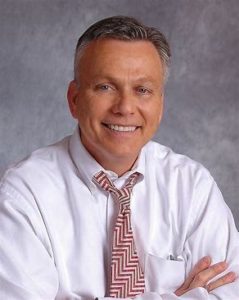 Speak the Language of the Country You’re In
Speak the Language of the Country You’re In
by Jim Priest
A number of years ago my wife and I travelled to England and France for an anniversary. England I was ready for. France? Not so much. The reason was I didn’t speak French, despite Mrs. Caderat’s best two year effort to facilitate French language learning in middle school. Later, my two years in Mr. Becker’s Spanish class created a mashed up hodge podge of foreign languages in my brain from which I never fully recovered. Is that “La” or “El”? I perennially wondered to myself. Sufficient to say I was a little scared about going to France. How would I order food?!
On top of my language anxiety I heard the French people were not that crazy about American tourists. “The French people are rude”, I was told. My fears were thus compounded.
So I came up with a game plan. I studied some quick courses on basic French phrases to utilize while en francais. I’ll admit, my pronunciation was poor. My grammar deplorable. But I found, in France, when I struggled to speak their language the French people were patient and even appreciative of my stumbling efforts. Instead of starting every sentence with “Do you speak English?” I would start with “Mon francais n’est pas trop bon” (My French is not too good) and the native would smile sympathetically. Sometimes they would break into English to assist me but sometimes they helped me limp along in their language. I found no rude people in France when I tried to speak their language.
Contrast that with the American tourist I observed in the Paris airport when I was departing. The ultimate “ugly American”, he was speaking harshly and loudly to the clerk in an airport store. As he shoved his intended purchase toward her repeatedly he kept shouting, “TELL ME WHAT IT IS IN AMERICAN DOLLARS!”. I cringed and pushed my American passport deeper into my pocket.
That experience taught me a principle that applies not only in foreign travel but in life: Speak the language of the country you’re in. Or at least try to. In France, try to speak French. In Mexico, use Espanol. The same holds true in the US. We are all “public speakers” and we always speak to an audience, whether it’s an audience of one at our dinner table, a small group in a meeting, or 500 people in a post pandemic conference presentation. Tune your internal radio dial to the station your audience is listening to and speak their language.
Don’t use needless jargon when you’re with those unfamiliar with your profession’s acronyms. If your audience is a group of 3rd graders, speak on a 3rd grade level. If you’re talking to adults who have a 3rd grade education discern whether you need to speak on a 3rd grade level or whether that would be demeaning. Socrates said, “Know Thyself”. Priest says, “Know Thy Audience”
And speak their language. Speak the language of country you’re in, wherever you go.
After my Rotary Reflection was posted I received a thoughtful but concerned email from a friend and fellow Rotarian who was troubled by the article. I wanted to be sure to clarify my intent. Here’s part of what my friend wrote:
Jim
I’m troubled by the piece you wrote for Rotary Reflections. I think you’re saying that it’s respectful and polite to communicate in the way that’s easiest for your audience. While I agree with that sentiment, it comes awfully close to saying, “You’re in America — speak English!” And that phrase is a well-established code for bigotry and racism. Where I grew up, one hears a plethora of languages daily: Mandarin, Cantonese, Korean, Japanese, Vietnamese and Spanish are all common, and that’s just the people who live there. Even in that melting pot, cries of “You’re in America — speak English!” are quickly followed by, “If you don’t like it here, go back where you came from!” There isn’t much of a leap between that and building a wall or taking would-be-immigrant children away from their families. Knowing you as I do, I’m sure that’s not what you meant to communicate. But I encourage you to consider how some might be hearing it. You might discover you’re speaking a language they know all too well in a way that didn’t occur to you.
My intent in the article was not to suggest, in any way, “You’re in America—speak English” or anything of the sort. I was trying to encourage us to be audience centric and to frame our communications in a way that can be best heard by those we’re talking to. My sincere apologies for not making that more clear.
Jim Priest

A good lesson too frequently learned too late!
Thanks
Thanks Dick!
Sorry, but when JFK told a massive crowd in Berlin in 1963 – “ Ich bin ein Berliner!” He didn’t just win his crowd he won the hearts behind the iron curtain, and the pride of his homeland!
Great article, Jim!